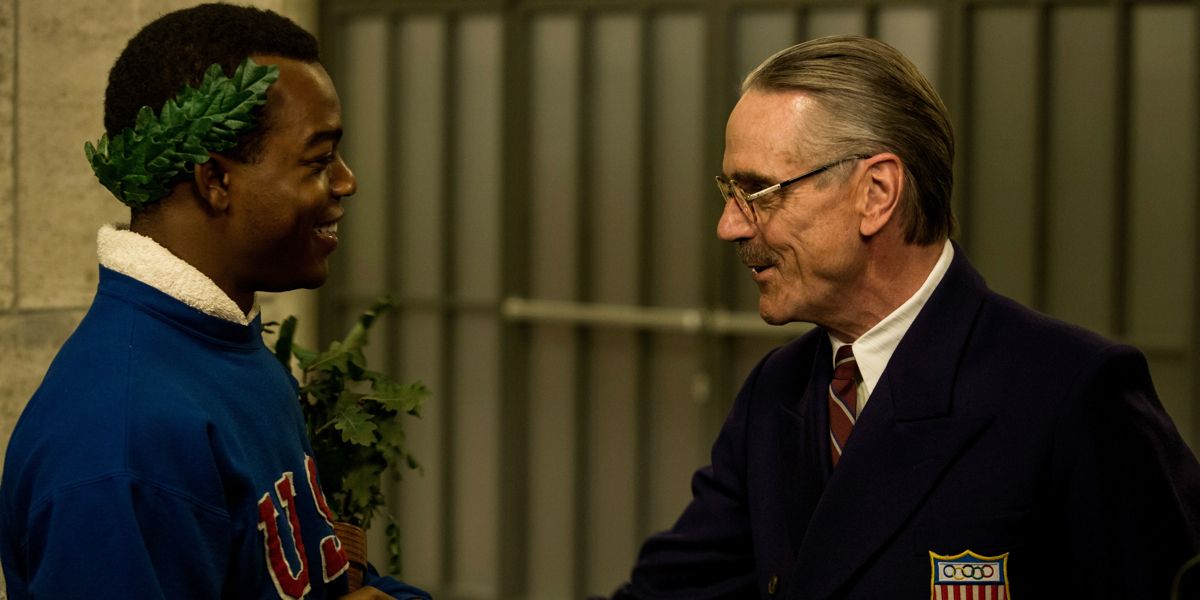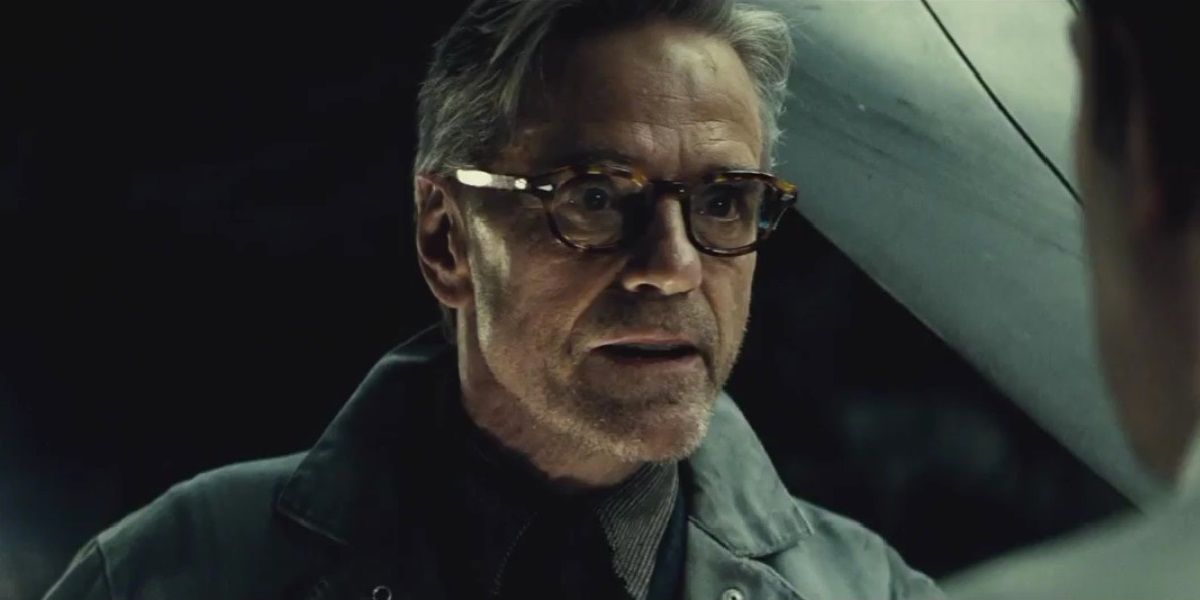There’s always a villain in every film. And when Jeremy Irons is involved, it’s usually him. In the new Jesse Owens biopic, Race, the esteemed actor portrays Avery Brundage, a member of the Olympic Committee that was responsible for convincing the American team to compete in the 1936 Berlin Summer Olympics, in spite of the Nazi initiatives that were happening at the time. “I’m always interested in people who are criticized in their lifetime,” Irons explains. “I wanted to try to find what sort of man he was. And not to judge him but to play him and to play his motivation."
During the Los Angeles press day for the upcoming film, Irons shared his opinion on whether or not Brundage made the right move and touched on what inspired him to take on the portrayal of a man with a “colored reputation.” We kinda…sorta…got him to talk about the upcoming Batman v Superman: Dawn of Justice (he did threaten to shoot me first). Apparently Ben Affleck as Batman is the real deal. “He’s extraordinary, quite extraordinary,” Irons tells us. “I think the public has a great treat in store!”
First off, what attracted you to the role initially?
Jeremy Irons: I think it was Stephen Hokpins’ passion to make it. I read it, thought, “This is a very interesting, educational, and good entertainment, this script.” The character he wanted me to play has a colored reputation. And I’m always interested in people who are criticized in their lifetime who come down to it as particularly judged. And I wanted to try to find what man he was, what sort of man he was, and not to judge him, but to play him and to play his motivation. Avery Brundage, who convinced the Olympic Committee to allow the American team to travel to Germany in that point in its history, believing as he did that sport should be above politics and that if you start making decisions to the politics, then probably no international sporting event would ever happen, because everybody disagrees with somebody.
Having portrayed him and digging a little deeper into his background, how do you feel about his decision?
Jeremy Irons: I think it was the right decision, personally. I think we may criticize how people behave. And also, of course, we have to remember the time. It’s 1936. It was before the Holocaust. And much of the world didn’t know about what was really happening in Germany, as we don’t really know what’s happening in Syria. We don’t really know what’s happening in Nigeria or Rwanda. I mean now there are places all over the world where terrible genocides are happening and we sort of don’t know about it. It’s the nature of the world.
And I think we must remember this was 1936 and here was a man who, he was a property…he built apartments and high-rises in Chicago. He was a man used to…very pragmatic. He would be able to work with the unions, be able to work with the mafia. Well, why couldn’t he work with the Nazis? But we’re going to come if you do pull yourself together.
That was what he did. And I think had he not done it, Jesse Owens would never have won those extraordinary races and made those records. So, for whatever reasons he did it, for which he as much criticized later, and I think probably wasn’t much liked, because the sort of man who goes his own way and is really forthright often isn’t liked and makes enemies. But I think he was justified in his position.
Did you ever think you’d be in a movie with Hitler?
Jeremy Irons: I’m very surprised I haven’t before, actually. There’s been an awful lot of them.
Batman v Superman. I know there’s probably nothing you can tell me…
Jeremy Irons: Not unless I shoot you.
How was that experience and how amazing is Ben as Batman?
Jeremy Irons: He’s extraordinary. Quite extraordinary. And Zack Snyder, the director, fantastic vision. And I think the public have a great treat in store.
Is this going to be something that we’re going to want to see over and over again?
Jeremy Irons: I suspect so. I hope so.
Lots of action?
Jeremy Irons: Lot of action.
Lastly, why should people see Race? What is different about this than any other version of the Jesse Owens story that we’ve heard before?
Jeremy Irons: I think a lot of people haven’t heard the Jesse Owens story before. It’s very surprising in America. I know a lot of the people who have seen it, a lot of the journalists, find it very educational. And they are, of course, people who are well read. So this story isn’t that well known.
And I think the way Stephen Hopkins has told it, it has tremendous tension in it. You don’t know which way it’s going to go. There are enormous pressures on whether he runs or whether he doesn’t run, whether the team goes or doesn’t go.
I think what it will do is to open for audiences the political problems of the time and the mood of the time and show them that, like with anything, there is no such a thing as black and white. There are gray areas. It’s complicated. Compromise is always the way to come to agreement, and compromise means that some people fall the wrong side of the fence. So I think it will not only be for audiences very enjoyable, but also a little bit educational, which is what you hope for.
NEXT: Stephan James Interview for Race
Race hits theaters on February 19, 2016.


